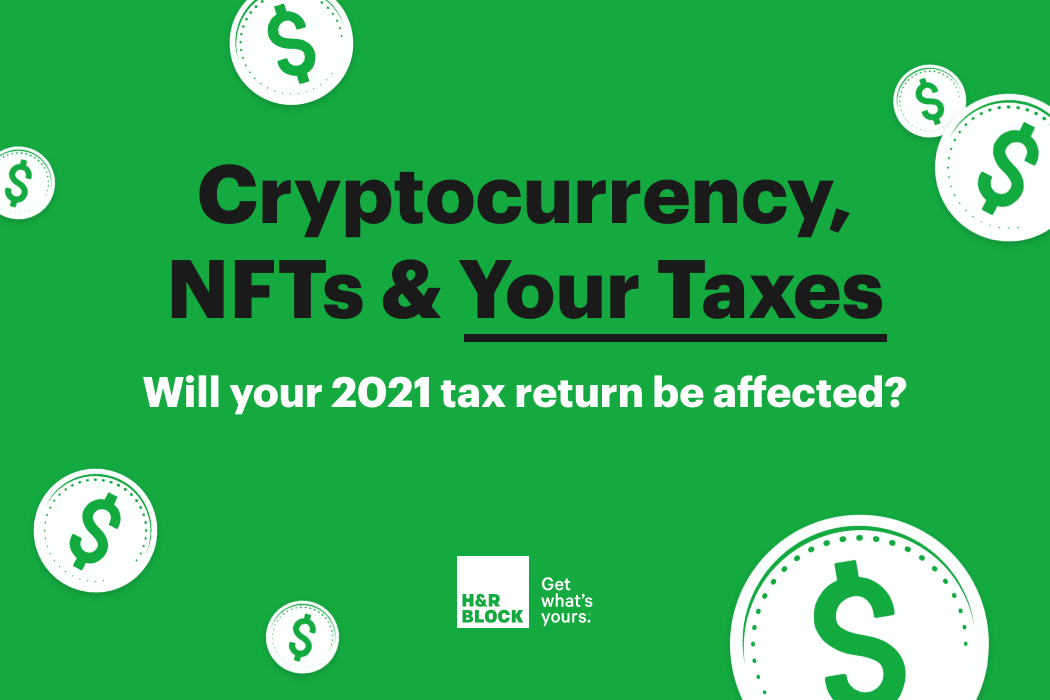Doing your taxes is already hard enough. But if you’ve dabbled in crypto or NFTs in 2021, it could make your taxes even more complicated. Here’s what you need to know about how cryptocurrency and NFTs will affect your taxes.
Breaking news: it’s important to do your taxes. It’s how you keep the government off your back and as a student, it could even result in a decent return coming your way. But depending on how you spent last year interacting with trendy investments like crypto and NFTs, it could be more important than ever to rely on a Tax Expert.
The tax deadline is May 2, 2022. Are you prepared?
Before you go any further, make sure to take the Life & Taxes quiz from H&R Block to see what you can be sure of when it comes to your tax return (and get a chance to win $2,500).
What is an NFT?
NFT stands for non-fungible token. It’s a digital asset exchanged with blockchain technology and can be anything from a GIF to an image to a song to a tweet. One of the defining features of an NFT is that ownership can be tracked, meaning creators will continue to profit beyond the initial sale of their art.
How Do NFTs Affect Your Taxes?
The law in Canada is pretty clear here. If you only bought NFTs, you have nothing to worry about. But if you sold any NFTs last year, then you will have to pay taxes on them. Specifically, you’ll be taxed based on the type of income you made: either business or capital gains.
If you sold NFTs as a business, you’ll be taxed on selling them as such, although you could be able to find some write-offs in the process, like if you bought new software or equipment to make NFTs, for example.
If you sold NFTs as a personal investment, you’ll only have to pay taxes on the increase of their value between how much you bought them for and how much you sold them for.
NFTs can be a fun hobby, just make sure you’re covering yourself so that they don’t end up costing you more than expected in the long run.
What Is Cryptocurrency?
More Canadians than ever own cryptocurrency, a digital/virtual currency with no central storage or authority. Cryptocurrency exists on multiple computer systems around the world and is typically tracked through a blockchain platform. Importantly, cryptocurrency is viewed as property in Canada.
How Does Cryptocurrency Affect Your Taxes?
Like any asset, cryptocurrency comes with tax obligations. You won’t be taxed when you acquire it or when you hold it, it’s only when you unload it in some way (trading, selling, gifting, converting to currency, etc.) that you need to worry about taxes.
How is it taxed? The short answer: it depends.
Cryptocurrency isn’t quite like any other investment out there. To the point that the rules are still being adjusted to deal with its popularity, making taxes on cryptocurrency earnings quite the unique effort.
Like with NFTs, the rate at which you’ll be taxed depends on if you’re buying and selling as a business or simply for personal earnings.
But consider that each case is different and will also depend on things like your other sources of income and what province you live in. You also have to factor in how long you held the currency and how you acquired it.
In Conclusion
Still a bit confused? The Tax Experts at H&R Block are definitely more qualified to help with everything you need to know so that you can maximize your tax return and make sure everything gets filed properly.
Students file for less with H&R Block. Find your local office and take advantage of their student filing offer today, starting at $59.99.
*Opinions expressed are those of the author, and not necessarily those of Student Life Network or their partners.

 Sponsored
Sponsored


